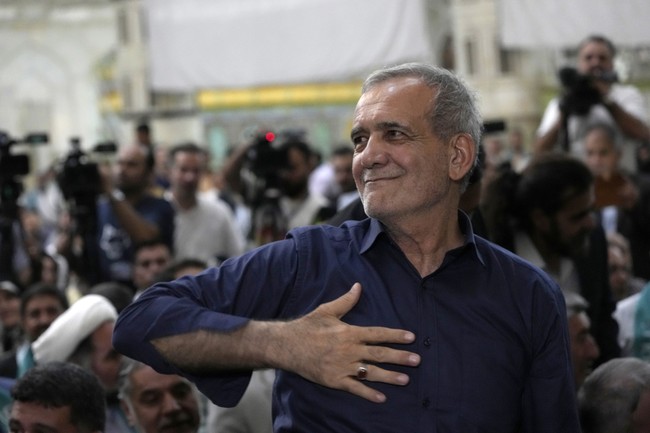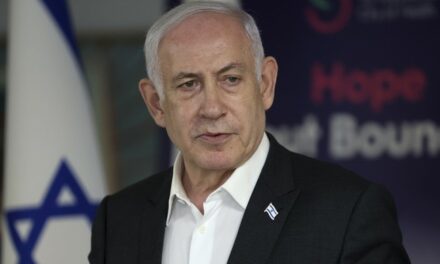We support our Publishers and Content Creators. You can view this story on their website by CLICKING HERE.

Paranoia? Propaganda? Both? Or did Israel actually carry out a secret assassination and steal key intel right from under the noses of the Iranian Revolutionary Guard Corps (IRGC)?
Advertisement
That’s what the IRGC’s media mouthpiece claimed this evening, which leads one to ask — if it were true, why would the Iranians want to admit it? Hmmmmm:
Israel allegedly carried out an assassination and document theft within Iranian territory, according to a presenter from a channel affiliated with the Iranian Revolutionary Guards, quoting an Iranian intelligence source.
The presenter, Vahid Haddab, claimed that “last month, Israel assassinated a figure whose identity has not yet been identified and stole documents inside Iran.” Since the assassination of Ismail Haniyeh in Tehran at the end of July, speculation about Iranian retaliation has intensified, especially following the explosions of pagers and communication devices in Lebanon, as well as the attack on the Iranian ambassador in Beirut.
Supposedly, the Iranians have rounded up a dozen spies spread across their country. The network allegedly aimed to damage Iranian national security, but other than the assassination and theft claims, the IRGC hasn’t revealed any other details. No one knows the assassination target, when it supposedly took place, or what was stolen, even in a general sense. There hasn’t even been any dates associated with the alleged arrests or any identification of those detained.
This sounds more like propaganda to cover up some big failure by the IRGC. Except, of course, such an assassination and theft would already be an admission of big failure by the IRGC. Why make the organization look weaker than it already is?
Advertisement
One reason for such a propaganda strategy would be to distract from other failures. This may be an attempt to pin the death of Ebrahim Raisi on the Israelis. The previous president died in a helicopter crash last May, as well as their foreign minister at the time, Hossein Amir Abdollahian. Their flight went down in a rugged forested area after flying into bad weather when returning from the border with Azerbaijan. Their own military concluded that it was an accident, however, in a report issued at the beginning of the month, although some rumors also pointed at potential overloading of the helicopter. Regardless, the Iranian investigators ruled out sabotage:
The report also cited the sudden appearance of a thick mass of dense fog rising upwards as the helicopter collided with the mountain.
According to the report, there were no signs of sabotage in parts and systems.
That was then; this is now, and “now” includes the massive escalation taking place between Hezbollah and Israel. Perhaps the Iranians want a pretext for intervening, although they haven’t been too particular about needing one before now. Although, to be honest, Raisi’s successor doesn’t sound as enthusiastic about that as one might think:
Iran’s president accused Israel on Monday of seeking a wider war in the Middle East and laying “traps” to lead his country into a wider conflict.
Masoud Pezeshkian told about two dozen media representatives that Iran does not want to see the current war in Gaza and airstrikes across the Israeli-Lebanon border expanded, saying that while Israel insists it does not want a wider war, it is taking actions that show otherwise. …
“They are dragging us to a point where we do not wish to go,” the Iranian leader said of Israel. “There is no winner in warfare. We are only fooling ourselves” if we believe that.
Advertisement
Ahem. Iran could end this now by ordering its proxy army in Lebanon to stop firing missiles into Israel. Israel itself has made that clear; the US issued an unexpectedly strong statement over the weekend to that effect, too. Missile launches are warfare, and as long as Hezbollah continues to engage in them, then Pezeshkian is only fooling himself that any other result would come of it.
For now, though, we will have to guess at the identity of the assassination target. Or perhaps more accurately, we will have to guess what the IRGC is attempting to cover up by making these claims.

 Conservative
Conservative  Search
Search Trending
Trending Current News
Current News 






